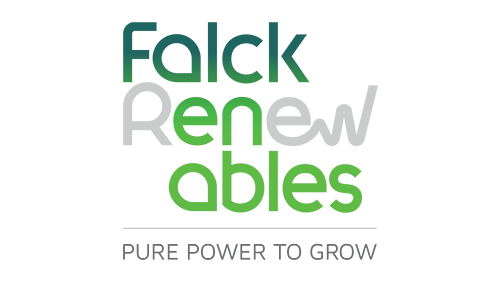Members' interviews
Interview with Toni Volpe, CEO of Falck Renewables

6 May 2022
This month, we sat down with Toni Volpe, CEO of Falck Renewables, to discuss their role in the energy transition, the promise of floating wind, and the importance of sustainability and community engagement.

Can you tell our readers a little about your organisation? (general history in Europe, countries in which you are active, specific projects you are involved in, industry players you have worked with, etc.)
Falck Renewables is a pure play in the renewable energy sector with an international presence in the UK, Italy, the US, Spain, France, Norway and Sweden with a total installed capacity of 1.4 GW, and a project pipeline of approximately 12.5 GW as of January 2022.
Together with onshore solar and wind projects, our pipeline includes floating offshore wind farms which we are developing in Italy and Scotland with our partners, totalling around 7.3 GW. In addition to building and operating our own renewable energy plants, we have established ourselves as an international player in the management of third-party assets – we currently manage 4.1 GW – and in the provision of technical and financial advisory services in over 40 countries.
Stakeholder engagement and local community involvement, core elements of our sustainability strategy, are at the heart of our business, fully integrated into our business plans and processes. Local stakeholders and communities are our key partners and we consider it strategically important to maintain an ongoing dialogue with them. We are also committed to sharing the benefits generated during the lifetime of each of our plants with the people who live nearby, respecting the environment and the needs of the local communities.
We provide sustainable energy solutions with the main goal of contributing to the energy transition and achieving net zero as quickly as possible.
What are the most exciting developments you have seen in the wind industry?
Floating offshore wind is now one of the main drivers in the development of renewable energy, and a turning point in the energy transition.
We believe that floating technology will make a huge difference to the energy industry and the way it operates, focusing on developing projects in deep waters further offshore, and helping countries to become increasingly energy independent.
Over the last few years the wind industry has built up strong ties with developers leading to innovative partnerships and delivering projects with a positive and lasting impact. Our experience in Scotland and Italy is a great example of this. We strongly believe that collaboration is the key to managing projects of the size required to really make a difference in combatting climate change.
While we are convinced that offshore wind will play a huge role in reaching net zero and providing energy security, we also believe that a mix of new and existing technologies is required. We are continuing to develop onshore projects across Europe.
What changes would you like to see in the wind industry?
We consider the speed of authorisation processes vital when developing new wind projects. We are starting to see some improvements. Some Governments (the UK, Germany and Italy among others) have already committed to substantially reduce the length of the permitting process.
This is to be welcomed but at the same time the grid needs to be further developed, as does the supply chain. Receiving a permit to develop a project three years sooner than in the past is good progress but is not useful at all if there is no grid connection available.
In line with our sustainability approach, we promote the local workforce and a short supply chain to maximise the value we generate locally, as we have always done in the past.
Going forward, what role do you see your organisation playing in the future development of wind energy?
One of our main goals is to work towards optimising wind energy’s role as a clean, reliable form of domestic electricity generation.
We are enablers of the energy transition, supporting Governments in meeting ambitious objectives on climate change such as reduced carbon emissions and providing solutions that encourage energy independence.
Our plans involve working collaboratively with a broad range of partners to identify key advances in technology. At the same time, we will continue to promote wind energy as an affordable source of electricity and ensure it benefits local communities and creates jobs.
How has WindEurope membership benefited your organisation?
A joint effort from all members of the industry is crucial – no one company alone will be able to tackle the environmental challenges we are currently facing. Working together will benefit not only the whole industry but also society in general.
Our WindEurope membership means we feel part of an interesting industry network which provides an effective platform to boost the visibility of relevant topics among institutional stakeholders and regulators.
If we look ten years ahead, what do you hope to have achieved?
I hope we will have continued to seize the opportunities generated by the energy transition and to have contributed to increased global energy sustainability by building on business innovation and technological developments.
At the end of the day, I think all of us have the same vision as we work towards tackling climate change. We want to create a better, greener, and more sustainable world where our grandchildren live safe and happy lives.


